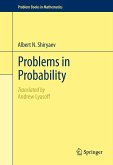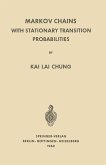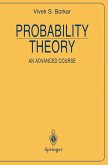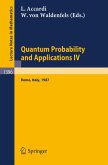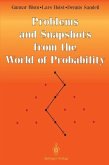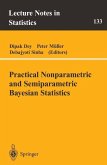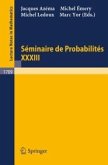This book contains a systematic treatment of probability from the ground up, starting with intuitive ideas and gradually developing more sophisticated subjects, such as random walks, martingales, Markov chains, the measure-theoretic foundations of probability theory, weak convergence of probability measures, and the central limit theorem. Many examples are discussed in detail, and there are a large number of exercises. The book is accessible to advanced undergraduates and can be used as a text for independent study.
To accommodate the greatly expanded material in the third edition of Probability, the book is now divided into two volumes. This first volume contains updated references and substantial revisions of the first three chapters of the second edition. In particular, new material has been added on generating functions, the inclusion-exclusion principle, theorems on monotonic classes (relying on a detailed treatment of "p-¿" systems), and the fundamental theorems of mathematical statistics.
To accommodate the greatly expanded material in the third edition of Probability, the book is now divided into two volumes. This first volume contains updated references and substantial revisions of the first three chapters of the second edition. In particular, new material has been added on generating functions, the inclusion-exclusion principle, theorems on monotonic classes (relying on a detailed treatment of "p-¿" systems), and the fundamental theorems of mathematical statistics.
Dieser Download kann aus rechtlichen Gründen nur mit Rechnungsadresse in A, B, BG, CY, CZ, D, DK, EW, E, FIN, F, GR, HR, H, IRL, I, LT, L, LR, M, NL, PL, P, R, S, SLO, SK ausgeliefert werden.
"This book is axiomatic and abstract, and presents a comprehensive but pure-math approach to probability theory. ... There are good exercises throughout the book ... . I think this is a good book if you like this kind of very abstract approach." (Allen Stenger, MAA Reviews, August, 2017)
"This book provides a general introduction to probability theory, and covers several advanced topics. ... Numerous examples and problems help the reader to understand the topics. The book is recommended to master and PhD students in mathematics." (László Viharos, Acta Scientiarum Mathematicarum, Vol. 83 (1-2), 2017)
It is clear that this book contains important and interesting results obtained through a long time period, beginning with the classical Bernoulli's law of large numbers, and ending with very recent results concerning convergence of martingales and absolute continuity of probability measures. Let us note especially that the great number of ideas, notions and statements in the book are well-motivated, explained in detail and illustrated by suitably chosen examples and a large number of exercises. Thus, the present book is a synthesis of all significant classical ideas and results, and many of the major achievements of modern probability theory. In the whole it is a welcome addition to mathematical literature and can become an indispensable textbook for courses in stochastics.
- J. Stoyanov, Zentralblatt
"This book provides a general introduction to probability theory, and covers several advanced topics. ... Numerous examples and problems help the reader to understand the topics. The book is recommended to master and PhD students in mathematics." (László Viharos, Acta Scientiarum Mathematicarum, Vol. 83 (1-2), 2017)
It is clear that this book contains important and interesting results obtained through a long time period, beginning with the classical Bernoulli's law of large numbers, and ending with very recent results concerning convergence of martingales and absolute continuity of probability measures. Let us note especially that the great number of ideas, notions and statements in the book are well-motivated, explained in detail and illustrated by suitably chosen examples and a large number of exercises. Thus, the present book is a synthesis of all significant classical ideas and results, and many of the major achievements of modern probability theory. In the whole it is a welcome addition to mathematical literature and can become an indispensable textbook for courses in stochastics.
- J. Stoyanov, Zentralblatt



